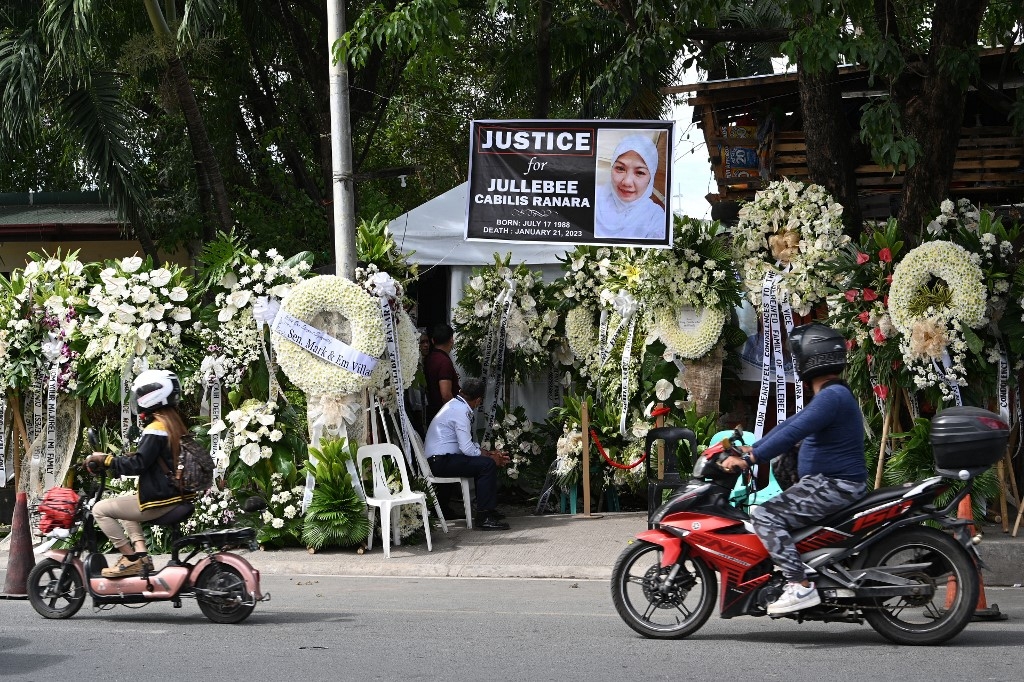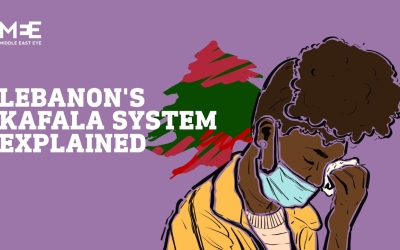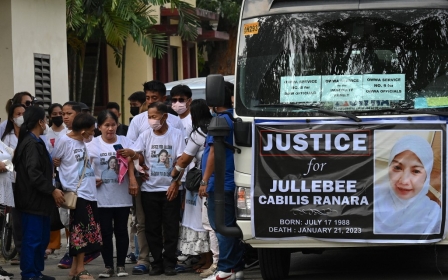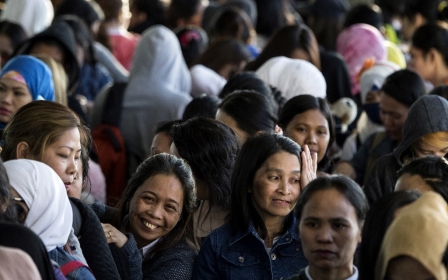Kuwait 'open' to ending visa ban on Philippines amid workers row

Kuwait said it "remains open" to negotiating with the Phillipines after a worker-protection row saw the Gulf state impose a visa ban on Filipinos.
Kuwait suspended all new work visas for Filipino workers last week, accusing Manila of violating Kuwaiti law and breaking the Vienna Convention on Diplomatic Relations.
Speaking on Sunday, Kuwait's Deputy Foreign Minister Mansour al Otaibi said his country would be open to lifting its ban if Manila admitted to breaking Kuwaiti and international law.
"The Phillippine embassy must admit its violation of Kuwaiti laws and the Vienna Convention on Diplomatic relations," said Otaibi.
"The embassy must also pledge not to repeat its violations ,and those responsible for these violations will be held accountable."
New MEE newsletter: Jerusalem Dispatch
Sign up to get the latest insights and analysis on Israel-Palestine, alongside Turkey Unpacked and other MEE newsletters
Kuwait issued the ban on Wednesday, saying the Phillipines broke several labour agreements between the two countries.
The alleged violations carried out in Kuwait include housing abused workers shelters, looking for women who had run away without informing local authorities, communicating with Kuwaiti citizens without permission and pressuring employers to add clauses to work contracts.
The row is the latest escalation in long-running dispute between the two countries over worker protections and employer rights.
Manila stopped sending first-time workers to Kuwait after the charred dead body of Filipino worker Jullebee Ranara was found in the desert in January this year.
Ranara was reportedly killed by her employer's son, having had her skull smashed in before being burnt and left to die in the desert.
Two weeks ago, the two countries began talks after the Philippines requested a meeting to discuss the suspension of workers' visas.
Worker abuse in Kuwait
Millions of Filipinos work abroad, with a significant portion landing jobs in Gulf countries as well as in Jordan and Lebanon under the exploitative kafala (sponsorship) system, which legally binds migrant workers to their employers.
The system leaves workers "vulnerable to wage abuse, employer exploitation, and situations that amount to forced labor", according to Human Rights Watch.
Approximately 268,000 Filipinas live and work in Kuwait.
The Philippines' Department of Migrant Workers said in 2022 that more than 24,000 violations and abuses of Filipino workers occurred in Kuwait, a marked increase from 6,500 in 2016.
In 2020, Kuwait sentenced a Kuwaiti woman to death for killing Jeanelyn Villavende, a Filipina worker who was allegedly physically and sexually abused by her employers.
An embalming certificate released by Kuwait's Ministry of Health said that Villavende died of "acute failure of heart and respiration" due to shock and multiple injuries in the vascular and nervous systems.
However, a separate autopsy by the Philippines National Bureau of Investigation (NBI) on 10 January 2020 showed the 26-year-old had healed wounds, suggesting that she was beaten weeks before her death, and had "clear indications of sexual abuse".
Middle East Eye delivers independent and unrivalled coverage and analysis of the Middle East, North Africa and beyond. To learn more about republishing this content and the associated fees, please fill out this form. More about MEE can be found here.





